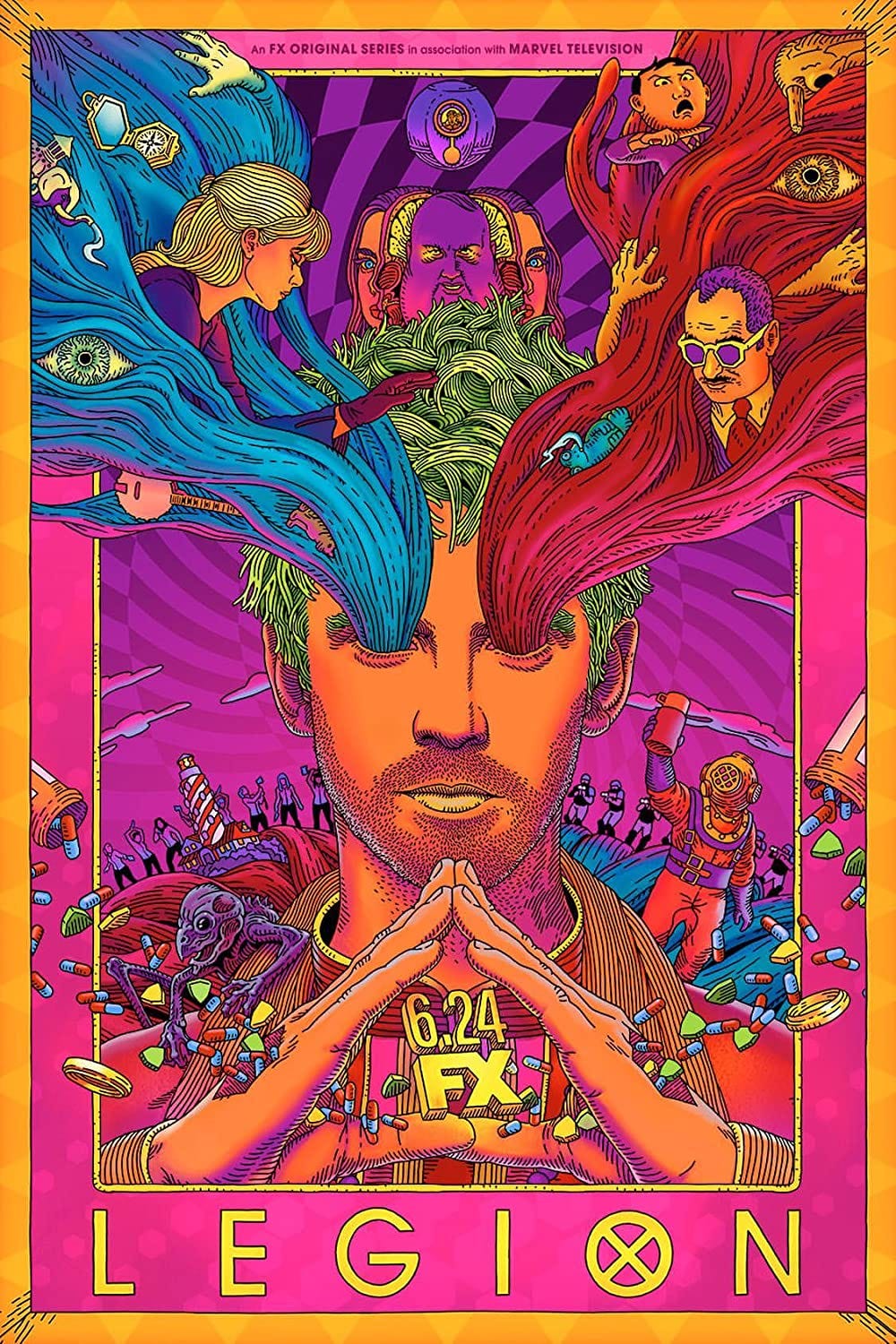Legion has had a very askew relationship with the rest of the MCU (Marvel Cinematic Universe). Noah Hawley is known as a go-to show runner who can take a straight forward property and elevate it artistically while also deepening the storyline and its characters. Before Legion, he took on the Fargo universe, attracting talent like Billy Bob Thornton, Kristen Dunst, Jean Smart, Ewan McGregor, Bob Odenkirk and many others. He had the blessings of the Coen brothers, even though they were not fans of the show.
Besides cashing in, why would Hawley want to delve into the superhero genre? Perhaps it was the storyteller’s itch to understand the nature of human longings from powerful beings. The three seasons of Legion aren’t perfect, but they are really good. The victim/hero/villain arc of our protagonist has some sweet symmetry.
David Haller doesn’t know he is the bastard child of Charles Xavier (a.k.a. Professor X). He’s suffered episodes of destructive telekinesis, but is convinced it’s schizophrenia. He cannot discern the real from the not real experiences and events of his life. Busted out of a mental institution by a mysterious group, they tell him that he is not mentally ill, but a powerful mutant struggling with his talents. They want to help him, but they also might be exploiting him.
With new found knowledge of his family origins and his powers, his anger surges. Absolute power corrupts absolutely as David becomes the villain, killing at will and manipulating reality to his liking. Eventually, his humanity shines through. He saves the world and vanquishes his childhood monster so a baby David can now grow up free from trauma. And at the end, we are back to the beginning. A perfectly elegant loop of a solid story.



